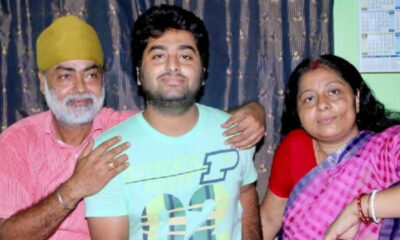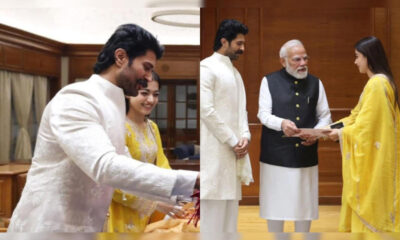‘Maa’ Review: Kajol Powers Through a Visually Striking but Predictable Horror Drama
In Maa, director Vishal Furia presents a horror-fantasy film that’s high on visual ambition and rich mythological references but falls short on emotional depth and narrative originality. The movie stars Kajol as a mother battling demonic forces rooted in Indian mythology, set against the backdrop of a culturally vibrant yet trope-ridden Bengali village. While the premise holds promise, the film often slips into predictability, salvaged primarily by Kajol’s commanding screen presence.
The story follows a familiar path: a devoted mother, a haunted past, a child in danger, and an inevitable divine awakening. From the very beginning, it’s easy to see where Maa is headed. The horror tropes—cursed lineage, shadowy creatures, mythological metaphors—are all in place, but they unfold in a manner that feels too safe and expected. For a genre that thrives on surprise and suspense, the absence of tension undercuts the film’s core.
However, where Maa truly excels is in its visual design. Furia and his team deliver a film that looks gorgeous, even when it aims to terrify. The VFX is impressive, offering creepy sequences that resemble panels from a dark fantasy graphic novel. From flickering shadows and ominous rituals to a shape-shifting mytho-creature, the film has an eerie aesthetic that elevates the experience, even if the scares don’t always land.
Kajol anchors the film with intensity and sincerity. She is entirely convincing as a mother pushed to the edge, drawing strength from her love and, eventually, from the divine feminine. It’s also refreshing to see Goddess Kaali taking center stage in a genre where Durga has been more dominant in cinematic depictions. Kajol taps into raw emotion, rage, and resilience—traits that define not only her character but also the thematic heart of the film: motherhood as power.
The supporting cast is a mixed bag. Ronit Roy, though impactful in moments, struggles with an exaggerated Bengali accent that borders on parody. His dialogue delivery feels jarring and detracts from the film’s authenticity. In contrast, Indraneil Sengupta, in a limited role, manages to leave a mark. Young actors Kherin Sharma and Rupkatha Chakraborty show promise, while Jitin Gulati is unfortunately underutilized.
Furia, known for Chhorii and its sequel, seems to be echoing similar motifs across his recent films. While he continues to explore female-centric horror narratives steeped in folklore, the storytelling appears to be treading familiar ground, lacking evolution in terms of depth and innovation. Moreover, the stereotypical portrayal of Bengali culture and language feels shallow and relies heavily on clichés, missing an opportunity to infuse authenticity.
Yet, there are emotional highs. The use of Jubin Nautiyal’s haunting Humnava Mere enhances the mother-daughter bond, while the end credits—featuring cast and crew names alongside their mothers’—is a heartfelt tribute that resonates deeply.
Ultimately, Maa is a film with noble intentions and impressive packaging, but it never fully rises above its genre conventions. It’s Kajol’s performance that keeps the film afloat, infusing heart and gravitas into a story that might have otherwise faded into the crowd of India’s myth-horror hybrids.
IT.




























